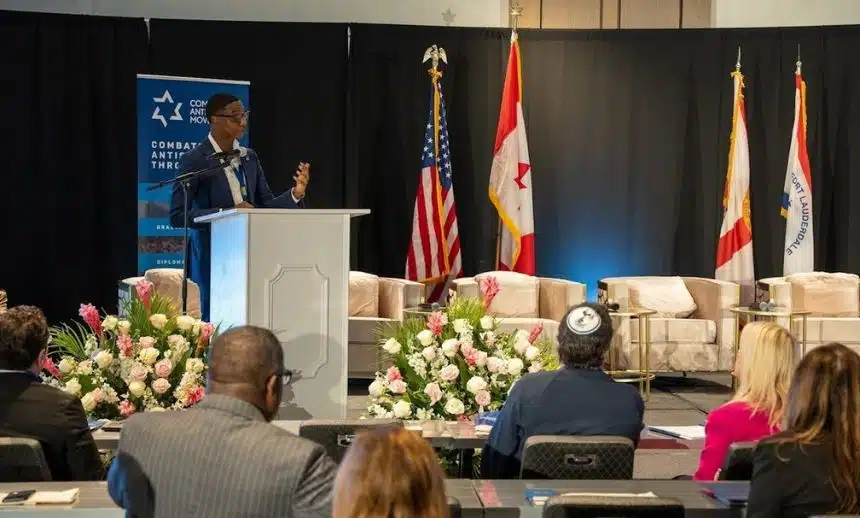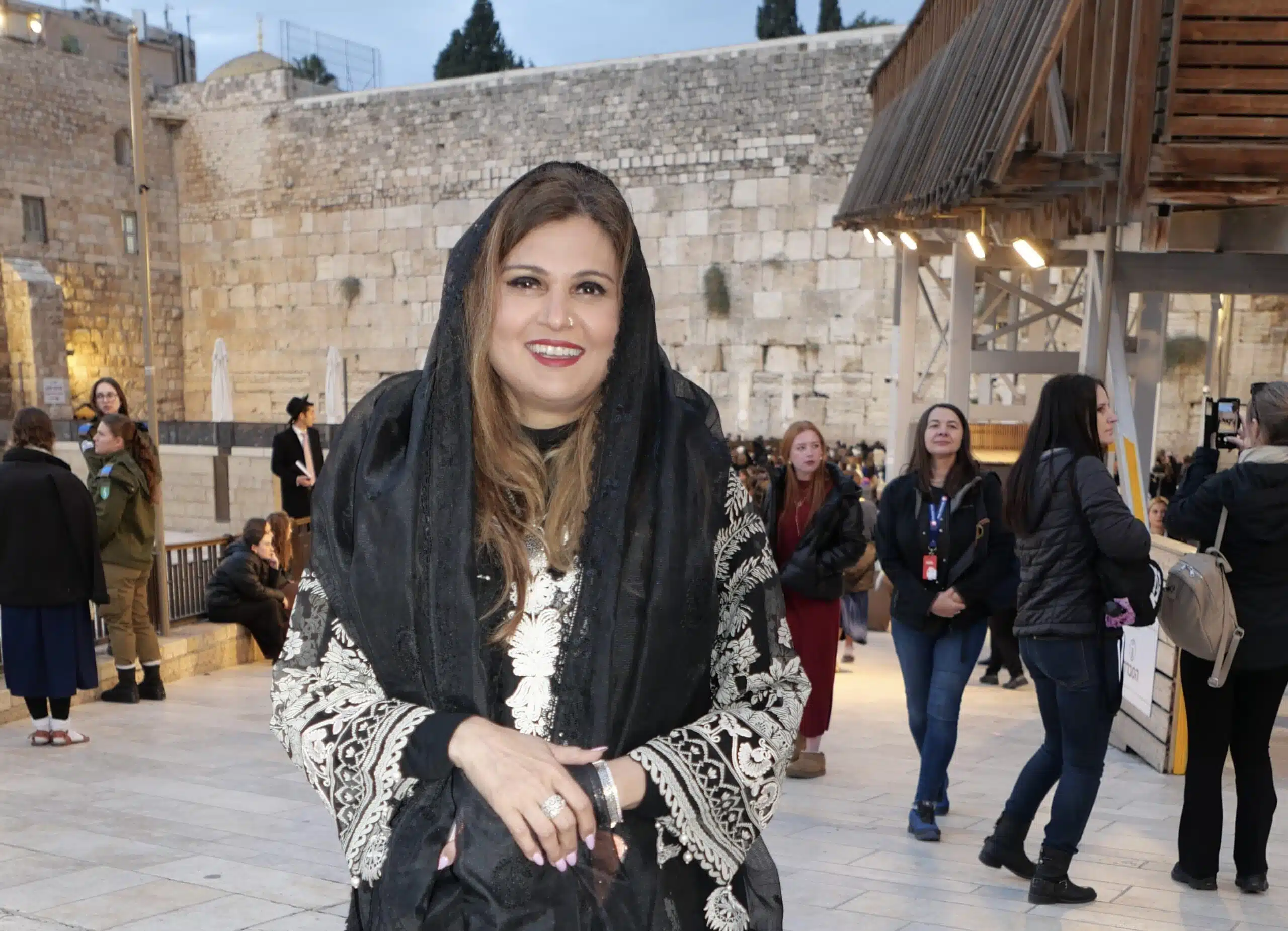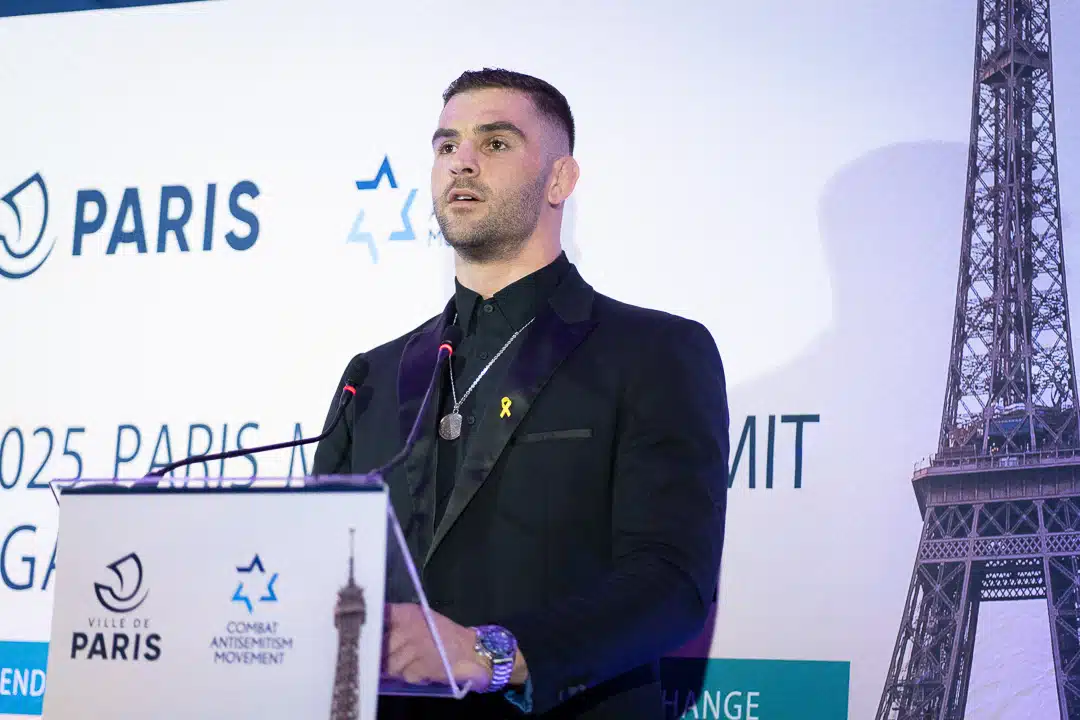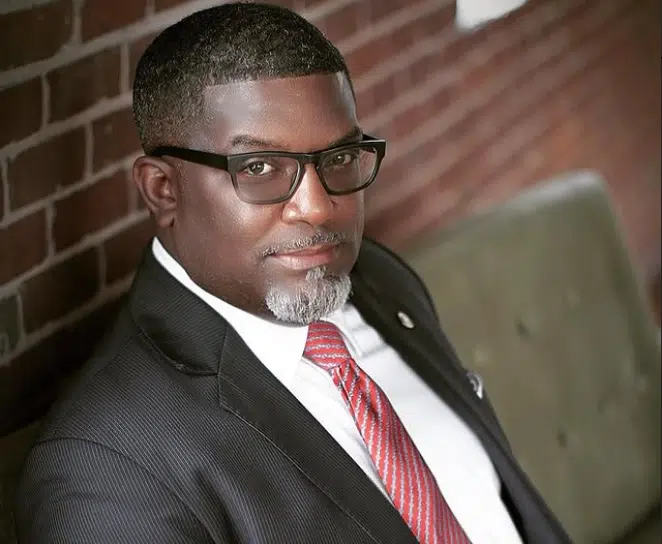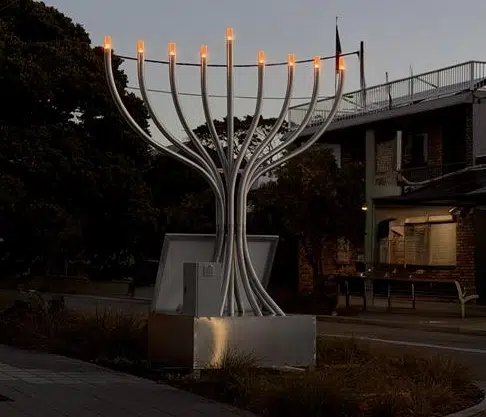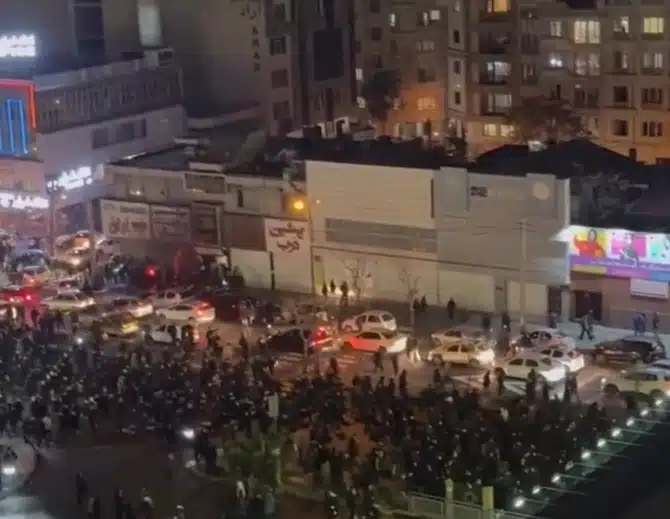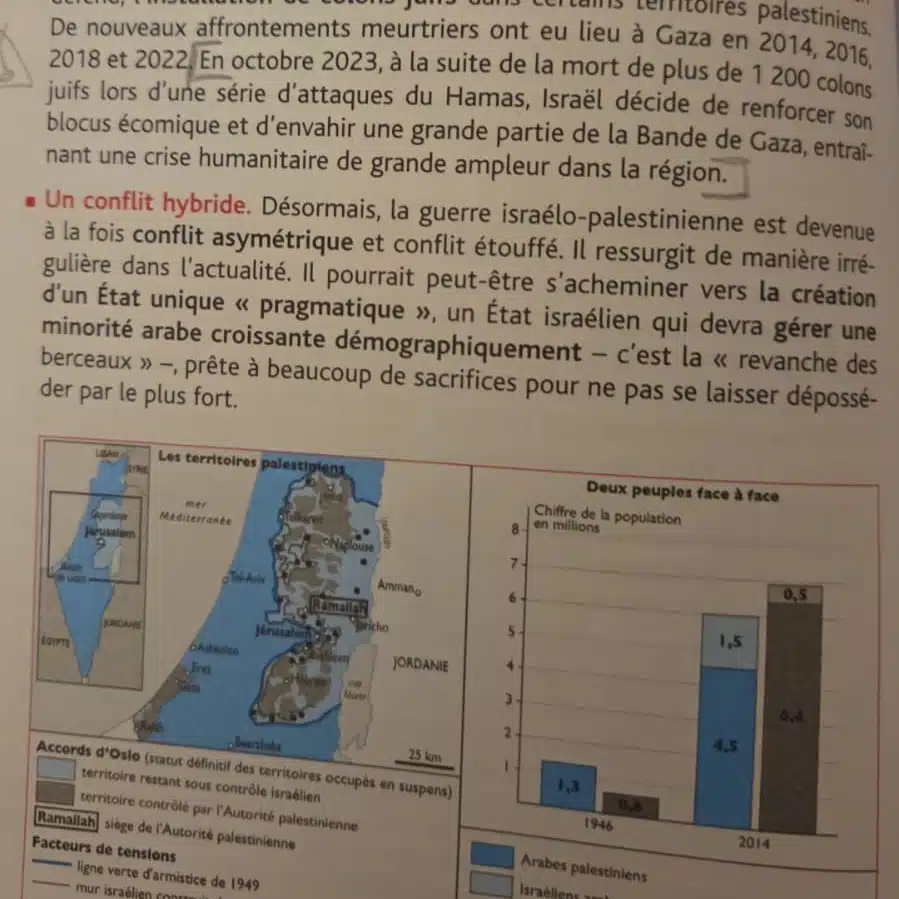|
Getting your Trinity Audio player ready...
|
As the wave of Jew-hatred triggered by the October 7th Hamas attack in Israel swept over the world last fall, Cleveland Mayor Justin Bibb traveled to Fort Lauderdale, Florida, for the 2023 North American Mayors Summit Against Antisemitism, organized by the Combat Antisemitism Movement (CAM).
At the forum, Mayor Bibb — who took office in 2022 at the age of 34 — delivered keynote remarks to leaders representing more than 50 cities across the continent, highlighting efforts being undertaken to fight religious bigotry, foster social harmony, and secure and nurture Jewish life in Cleveland, home to historic and vibrant community of more than 80,000 Jews. He also met with family members of Israeli hostages being held captive by Hamas in the Gaza Strip.
This week, Mayor Bibb spoke with CAM Editor-in-Chief Barney Breen-Portnoy to reflect on his experience at the summit and share his thoughts on the role of cities in the collective effort against rising antisemitism.
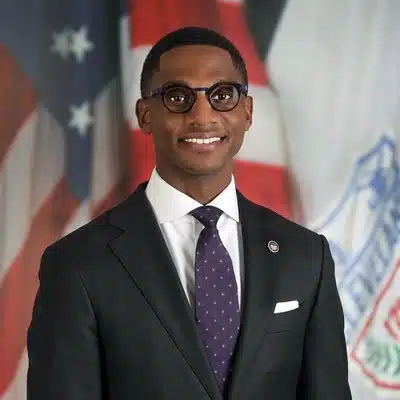
How did the North American Mayors Summit Against Antisemitism contribute to your understanding of the nature of modern-day antisemitism and ways to confront it?
“I think it really allowed me to see a broader spectrum of the challenges that we face as mayors to combat antisemitism. Obviously, I signed up to go to the conference before the terrorist attacks that occurred on October 7th. And so being able to be there, as we as a community came together to talk about our collective and shared response to that attack was very helpful. I think it was also helpful for me as mayor to meet with some of the families of the victims of that tragic day to really humanize the issue and put it in greater context for me.”
“There are a couple of things that that we are trying to proactively do in order to really combat antisemitism. Number one, broader coordination with our public safety and law enforcement officials across the city of Cleveland, the county, as well as other law enforcement that manages our colleges and universities in Cleveland. And we’re also just trying to figure out how do we continue to talk about the conflict [in the Middle East] with the right context, knowing that we’ve seen a lot of protests from the Palestinian community, who may share a different perspective.”
What specific actions are you already undertaking or are planning to undertake in your city against antisemitism?
“All of our public safety forces inside our police department are going through extensive antisemitism training that started with our public safety director and our chief of police. And then we are also continuing to host community conversations through our Community Relations Board on how we can combat antisemitism.”
Which cities-oriented strategies or approaches have you found particularly effective in addressing contemporary manifestations of antisemitism?
“Honestly, just using the office of the mayor to be a listener-in-chief and a collaborator-in-chief to get an understanding of what’s working and what’s not working and how we can be supportive.”
What resources or support would you need more of to enhance your effectiveness in combating antisemitism at the city level?
“I think just more consistent best practices being shared at the local level. I feel having more support at the local level, given the fact that we’re seeing more and more antisemitic hate and attacks, with the current conflict, would be helpful.”
As mayor, how do you thread the needle between protecting free speech and preventing expressions of hatred that can incite violence in your city?
“We’ve changed our protocols at public comment to address this. I’m not going to allow any form of hate speech or antisemitic behavior to be allowed in City Hall. Obviously, I don’t run my council meetings, the City Council does, but I’ve been very adamant with my public safety team about zero tolerance.”
Are there any obstacles you have faced in implementing strategies and initiatives against antisemitism?
“Not necessarily. I think it’s just a challenging time to have pragmatic, commonsense conversations about this important issue. The political climate has made it hard.”
What role do you think the IHRA Working Definition of Antisemitism can or should play in your city’s efforts to combat Jew-hatred?
“We have not taken it up. I think we’re exploring it and open to looking at that at the local level. But we want to make sure we have the right community input too, as well.”
How can CAM help municipal leaders fight antisemitism?
“I just think the more real-time information we can get, the better. We are not members of Congress. Obviously, I’m not the president, and I’m not the secretary of state. You know, my job primarily is focused on domestic policy. And so the more information we can get, in terms of how to communicate what’s happening in the region, how do we find a way to counterbalance some of the false information about what’s happening in the conflict, the better we’ll be prepared to really be great advocates for the Jewish community.”
